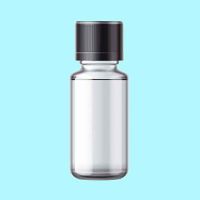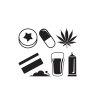How long can drugs be detected in your system?
Why do employers carry out drug tests?
Employers test for drugs and alcohol to fulfil health and safety duties, meet regulations, protect everyone, and support employees facing substance issues.
Testing is typically detailed in your contract, workplace policy, or staff handbook, so it should not come as a surprise.
When testing can happen
- Pre-employment screening as part of recruitment checks
- Random testing, which must be truly random, is commonly used in safety-critical roles
- For-cause testing, where there is a suspicion of drug use
- Post-incident testing, for example, after an accident at work
Types of workplace drug tests in the UK
Urine testing is the most common method, but saliva and hair tests are also used; in rare cases, blood tests may be carried out. Each has different advantages and limitations.
Urine testing
Urine tests are the standard choice for many employers. They are cheap, easy to collect, and can detect many drugs. They typically show use from the past few days, though cannabis may be detected for much longer in daily users.
Saliva (oral fluid) testing
Saliva tests are increasingly used, especially for on-site or post-incident screening. Less intrusive and difficult to tamper with, saliva testing detects very recent use—typically 12 to 48 hours—so it can indicate current impairment rather than past use.
Hair testing
Hair analysis provides the longest detection window. A small section of hair is cut close to the scalp and tested in a laboratory, showing a pattern of drug use going back weeks or even up to 90 days.
Hair testing is significantly more expensive than urine or saliva testing, so it is not typically used for day-to-day workplace testing. Instead, it appears more often in high-level pre-employment checks, particularly in industries where long-term abstinence is required.
Blood testing
Blood tests are rare in employment settings because they are invasive, costly, and require medical staff. They only detect very recent drug use—typically hours to a few days. In the UK, blood testing is primarily used in hospitals or by the police in drug-driving cases, rather than in workplace programmes.
How the body processes drugs
Once a drug is taken, the body starts to break it down and remove it. This is why the effects wear off, but it also explains why traces can still be detected long after the “high” has gone.
- Metabolism – the liver processes most drugs into different chemicals called metabolites. Many drug tests look for these metabolites rather than the drug itself, because they last longer and are easier to detect. For example, cannabis tests often detect THC-COOH, an inactive by-product, not THC itself.
- Elimination – drugs and their metabolites leave the body through urine, but also through sweat, saliva, and hair.
- Half-life – every drug has a “half-life,” which means how long it takes for half of a drug to be broken down. Drugs with long half-lives (such as diazepam) can stay detectable much longer than drugs with short half-lives (such as cocaine).
- Frequency of use – occasional use clears faster, while regular use means the body stores more metabolites, especially with cannabis, which is fat-soluble.
- Individual factors – age, weight, health, hydration, and even genetics can change how quickly someone processes drugs.
This explains why two people can take the same drug but test positive for very different periods.
How long can drugs be detected?
Detection times vary depending on the drug, the type of test, the frequency of use, and individual factors. These are approximate ranges for urine testing, the most common workplace method:
| Drug | Typical detection window (urine) | Notes |
|---|---|---|
| Cannabis | 1–3 days (occasional); 28+ days (daily/heavy) | Fat-soluble; tests detect metabolite THC-COOH. |
| Cocaine | 1–3 days; heavy use 5–7 days | Metabolite benzoylecgonine is usually detected. |
| Amphetamines | 1–3 days | May be longer with chronic use. |
| MDMA (ecstasy) | 1–3 days (sometimes 4) | Similar to other amphetamines. |
| Opiates | 1–3 days | Methadone 3–7 days; synthetics like fentanyl may need specific tests. |
| Benzodiazepines | 2–3 days (short-acting) to 7–10+ days (long-acting) | Chronic use extends detection. |
| Ketamine | 1–3 days (sometimes 4) | Detection may vary. |
| GHB/GBL | Up to ~12 hours | Very short window; hard to detect. |
Other methods: Saliva tests usually detect recent use (12–48 hours); hair tests reveal patterns up to three months.
Agreement to be tested
Employers can only conduct drug tests if a clear policy is in place that employees are aware of and have agreed to. This may be part of your contract or your staff handbook.
If a new policy is introduced after you start working, your employer will normally need your agreement to change your contract. You can refuse, but this may affect renewal if you are on a fixed-term contract.
Refusing a drug test
If you have not agreed to a drug testing policy, you can refuse to be tested, and your employer cannot formally act against you. However, refusal may raise suspicion, and some employers may still view it as a red flag.
Positive tests don’t always show impairment
A positive result does not always mean someone was impaired or under the influence at work. Cannabis can remain detectable in urine for weeks in daily users, long after any effect has worn off. Benzodiazepines and other medicines may also show up even when taken as prescribed. A positive result confirms the presence of a drug or its metabolites, not that the person was unsafe at the time of the test.
Failing a drug test & right of appeal
The consequences of a positive test depend on your company’s policy. Some employers operate strict “zero tolerance” rules, treating a positive result as gross misconduct. This can lead to suspension or dismissal, especially in safety-critical jobs.
Other contracts state that employees must not be “under the influence” at work. In these cases, a positive result alone may not be sufficient to prove misconduct — particularly if the drug was taken outside work hours.
Right of appeal
If you are disciplined or dismissed after a positive drug test, you normally have the right to appeal. Employers are expected to follow a fair disciplinary process. This includes the chance to explain, access to the results, and the ability to challenge them.
Many employers use a two-stage system, consisting of an initial on-site screen followed by a laboratory confirmation test. You can request independent retesting. If dismissed, you can appeal internally and, if necessary, take the case to an employment tribunal.
Drug testing and driving
Workplace testing for drivers
Employers in transport, logistics, and other safety-critical sectors often have strict drug and alcohol testing policies. Testing may be random, part of recruitment checks, or carried out after accidents. A positive result could mean suspension or dismissal, even if you are not over the legal driving limit.
The law on drug driving
- Driving while unfit through drugs – based on impairment. If police believe your driving is unsafe, they can carry out roadside impairment tests and require further testing.
- Specified drug limit offence (2015) – you must not have above a set limit of certain drugs in your system. Limits are very low for illegal drugs (e.g., cannabis, cocaine, MDMA, heroin, ketamine). Some prescription medicines (e.g., benzodiazepines, methadone, morphine) also have limits; if prescribed, you may drive legally if you take them as directed and are fit to drive.
How the police test
Roadside saliva tests are commonly used for cannabis and cocaine. If positive, or if impairment is suspected, you may be taken to the station for a blood test.
Penalties
- Minimum 1-year driving ban
- Fine up to £5,000
- Up to 6 months in prison
- Conviction remains on your licence for 11 years
FAQs
How long does cannabis stay in your system in the UK?
In urine, cannabis can be detected for 1–3 days after occasional use, and up to 28+ days for daily users. Saliva usually detects use within 12–48 hours.
Can my employer randomly drug test me?
Yes, but only if it is written into your contract or staff handbook, and tests must be carried out fairly and consistently.
Do police use hair tests for drug driving?
No. Police use roadside saliva tests and, if needed, blood tests at the station. Hair testing is not used for drug driving offences.
Does a positive drug test mean I was impaired at work?
Not always. Many tests look for metabolites, which can remain long after the effects have worn off.
Do I have a right to appeal a failed drug test at work?
Yes. Employers must follow a fair process, give you the chance to explain, and allow you to challenge results. If dismissed, you can appeal internally and, if necessary, to an employment tribunal.
Key points to remember
- Workplace drug testing should only occur if it is specified in your contract or workplace policy.
- Different tests show drug use over very different timeframes, from a few hours (blood and saliva) to several months (hair).
- The duration for which drugs remain detectable depends on how the body processes them — often through their metabolites.
- A positive result does not always prove you were impaired at work.
- If you face disciplinary action or dismissal, you normally have the right to appeal.
- For drivers, both workplace rules and the law apply — and the legal limits for drugs when driving are very low.
Heads up!
This is for general information only and is not legal advice. Workplace drug testing policies vary, and employment law depends on individual circumstances. If you are facing testing, disciplinary action, or dismissal, seek expert help from Release, ACAS, or an employment solicitor.
Further information and support
Release
Specialist drugs and legal advice for the public and professionals
📞 020 7324 2989
www.release.org.uk
ACAS
Independent advice on workplace rights, rules and best practice
📞 0300 123 1100
www.acas.org.uk
The Law Society
Search for a local employment solicitor
www.lawsociety.org.uk
Trade unions
Many trade unions provide free legal support and representation for members facing disciplinary or employment issues
Talk to Frank
24-hour confidential drug advice for young people, parents and carers
📞 0300 123 6600
www.talktofrank.com













